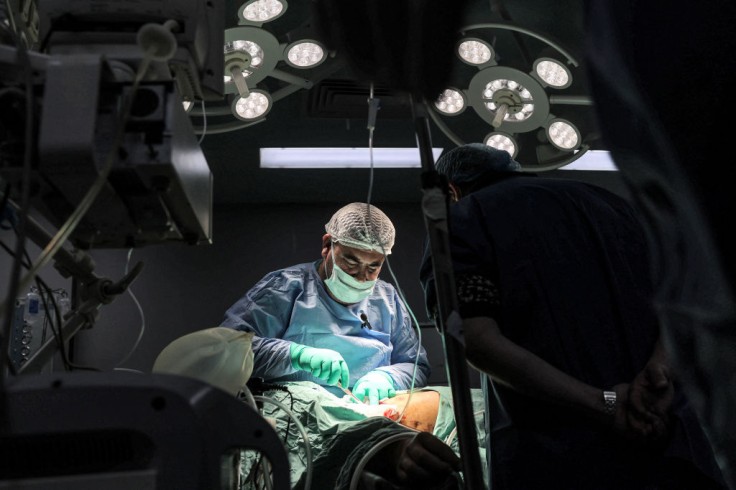
A woman who underwent a pig kidney transplant had to return to dialysis as the organ began to fail after just 47 days, leading surgeons to remove it.
Second Recipient of Gene-Edited Pig Kidney Return to Dialysis
Lisa Pisano, the second recipient of a gene-edited pig kidney at NYU Langone Health, underwent a stable operation to remove the failing organ earlier this week.
The first recipient, Richard "Rick" Slayman at Massachusetts General Hospital, passed away nearly two months after his transplant, though doctors stated his death wasn't directly linked to the experimental procedure.
Pisano, facing heart and kidney failure, underwent two dramatic surgeries in April to implant a mechanical heart pump followed by the pig kidney.
Initially, her recovery seemed positive, but managing both the heart pump and the new kidney posed unique challenges. Her blood pressure dropped too low multiple times, hindering optimal blood flow to the kidney, and leading to its gradual loss of function.
Despite no signs of rejection in a recent kidney biopsy, significant injury from insufficient blood flow was observed. Further study of the removed kidney is planned for insights into its reaction in a living body.
Unfortunately, Pisano isn't eligible for the life-prolonging heart pump while on dialysis, and her heart condition prevents a traditional kidney transplant.
Despite setbacks, her strength and courage inspire the medical team to continue exploring the potential of xenotransplantation. Pisano acknowledged the uncertainty of the pig kidney's success but felt it was worth a try, especially considering the dire shortage of donated organs in the U.S.
With over 100,000 people on the U.S. transplant waiting list, mostly awaiting kidneys, and thousands dying while waiting, the need for other solutions is important.
Biotech companies are genetically modifying pigs to create more human-like organs, less prone to refusal. While formal researches are upcoming, temporary transplants of pig organs into brain-dead bodies have shown rising outcomes.
Despite difficulties and setbacks, researchers are committed to exploring xenotransplantation as a possible solution to the organ shortage crisis.
Doctors Remove Genetically Modified Pig Kidney Days After Transplant
Lisa Pisano, a 54-year-old New Jersey local, has recently become the second person to get an advanced gene-edited pig kidney transplant at NYU Langone Health.
The surgery, which also involved implanting a mechanical heart pump, marked an important medical milestone as Pisano was the first recipient of both a heart pump and an organ transplant.
Facing heart failure and end-stage kidney disease before the surgery, Pisano's situation rendered her not qualified for human donor transplants.
Approved by the FDA under a "compassionate use" program, the procedure offers hope for patients with severe medical conditions.
While Pisano has reportedly recovered well, ongoing monitoring is crucial as rejection signs may not manifest until later.
Despite facing long recovery times and uncertain lifespans, patients like Pisano represent a growing population in need of organ transplants, with thousands awaiting procedures amidst a scarcity of available organs.
The potential of pig organs to address this shortage is promising, with previous experiments showing encouraging results. While ethical concerns persist, experts believe these transplants will provide invaluable insights into the procedure's safety and effectiveness.
Related Article: First Person to Receive Kidney Transplant from Genetically Modified Pig Dies 2 Months After Surgery